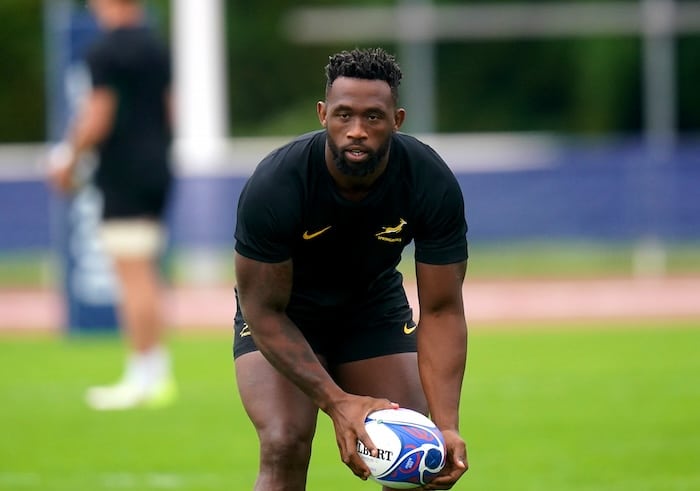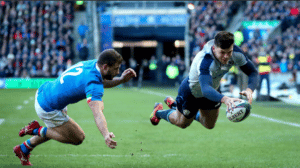Springbok captain Siya Kolisi believes the highly-anticipated Rugby World Cup final encounter against New Zealand is “probably the biggest game of his life”.
Kolisi, Faf de Klerk (scrumhalf), and Damian Willemse (fullback) loved that the teams had been rivals for more than 100 years and that it would make the global show even more exciting.
The captain of the Springboks said that playing the All Blacks is always a big deal. This year, the two best teams in the world are also playing in the RWC final, which makes the event even bigger.
“It’s probably the biggest game of my life,” said Kolisi.
“I don’t think it will happen in our lifetimes again that we have another game like this, and we are excited. We know how good they are.
“One only has to look at how they turned things around quietly after going through a dip last year to see that. The fight they showed to get here says a lot about them as a team. Very few people gave them a chance to be here, and we are looking forward to Saturday.”
Kolisi said that this was more important for the team than just playing in the RWC final. It will be a big day for South Africa as a whole.
“What we do on Saturday can control the mood of over 62 million South Africans,” said Kolisi. “People have been sending messages saying when we play it is the only time they are happy, and as a team we represent all kinds of people.”
Kolisi may not have realised how important it was for his country to beat New Zealand in the 1995 RWC because he was only a toddler at the time. But he does now, especially after winning the title in Japan in 2019.
“I was four years old then (in 1995), so I didn’t get to watch the game,” said Kolisi. “But the significance of that match for the Eastern Cape (where he’s from) and South Africa was massive, so it doesn’t get bigger than this in this World Cup. I’m sure you’ve seen the messages of support and videos from home.”
Kolisi added: “The last time the Springboks played a Rugby World Cup final in France (in 2007), I was sitting at a tavern in the Eastern Cape where people didn’t really know much about rugby.”





